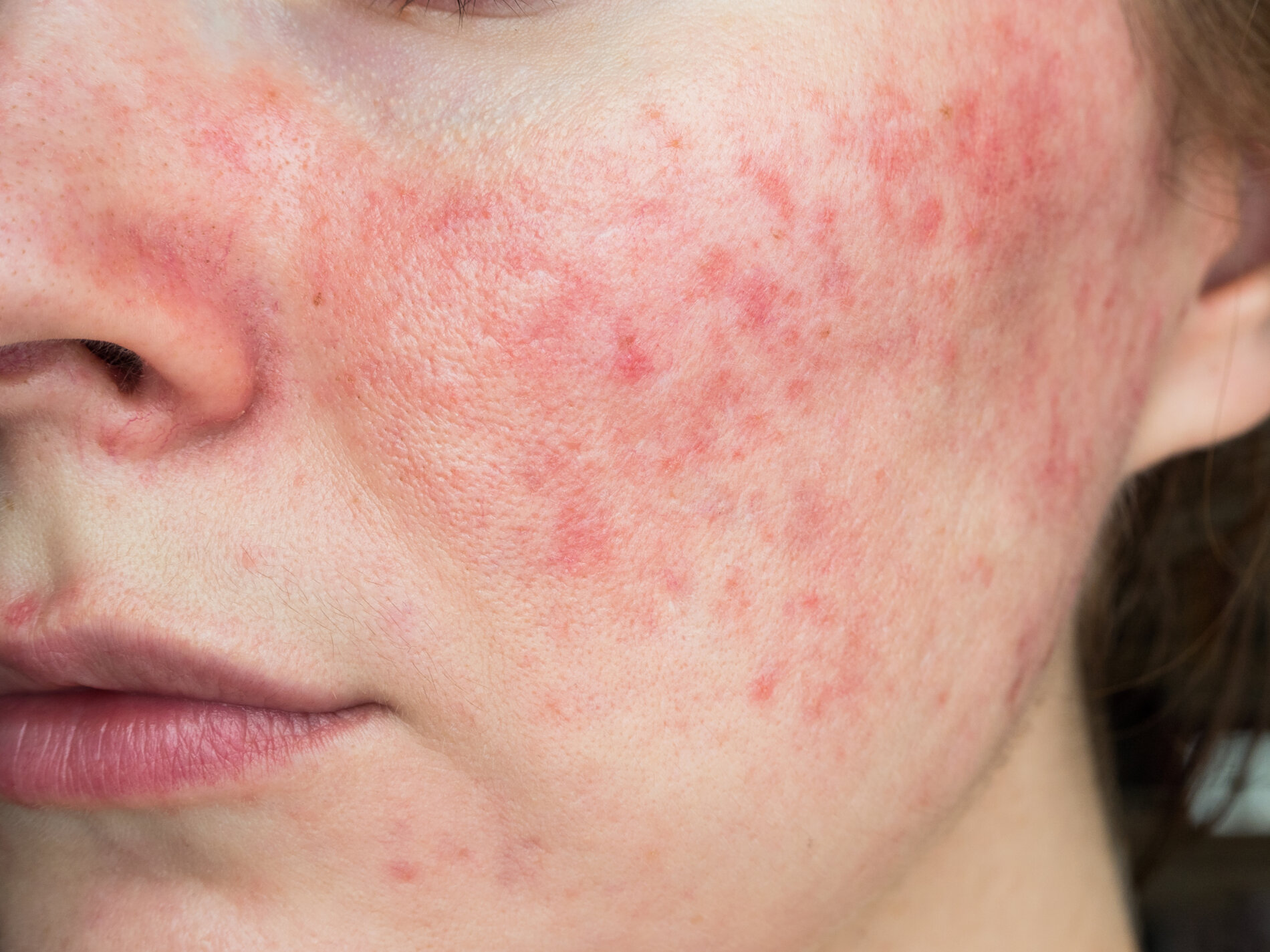Rosacea
Rosacea is a common and chronic disorder that affects the facial skin, typically presenting as mild to severe redness of the central face. Rosacea, which runs in some families, most commonly occurs in people with lighter skin tones, but the condition can affect anyone. Certain environmental exposures may worsen rosacea.

Symptoms
The symptoms of rosacea include intermittent or persistent redness of the facial skin, primarily on the nose and cheeks. Acne-like bumps and visible blood vessels may occur in the same area. Rosacea may affect the eyes, leading to redness, crusting and irritation of the eyelids.
Treatment
Identifying and avoiding environmental triggers is a major factor. More severe cases may require topical or oral medications. The Vbeam Pulsed-Dye Laser effectively treats the general facial redness and dilated blood vessels of rosacea.
When to make an appointment
If your rosacea is symptomatic, worsening or not responding to your current treatment plan, Contact us for an evaluation.